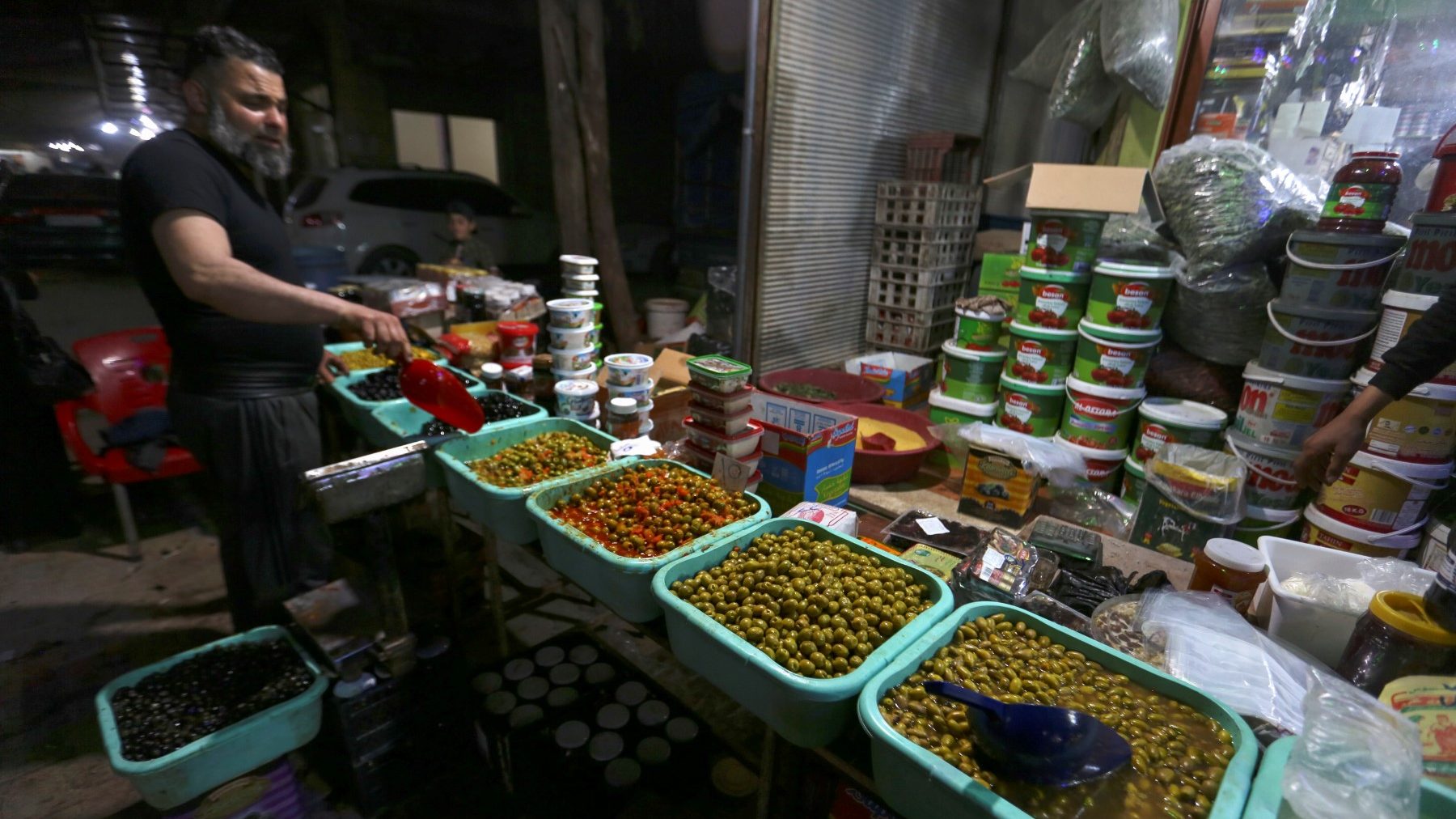In early February, Syrians in regime-controlled areas experienced considerable concern, following the government’s decision to lift subsidies on basic items such as bread, gasoline, gas, and food supplies. Local sources and pages reported anger that swept across all areas, even those that are considered the regime’s stronghold, amid financial and economic pressures facing the entire people. 12.4 million people are suffering from malnutrition, according to the World Food Programme.
The Regime tried to reduce the pressure, mediated by the smart card, as those excluded from the subsidies are forced to buy the bread bag for more than 1,000 Syrian pounds, while the price on the smart card is in the range of 200 Syrian pounds.
However, the situation of absorbing anger did not last for more than two months, and the new surprise that the regime is preparing is to lift the subsidies completely for all goods and all classes. This is what economist Ziad Arbash put forward on Radio al-Madina –which is close to the regime. As usual, the regime tries its best to beautify all decisions that increase the impoverishment of the people, before even applying them.
Prelude before the decision is announced
Arbash gave examples that are irrelevant to reality and said that he supports lifting the subsidy completely, that about 50% of the subsidy is wasted, and that the employees do not live on salaries because they receive remittances and financial subsidies from outside the country or from additional work they do. He added that “there are families in society, no matter how poor they are, that spend about one million Syrian pounds per month.”
Read Also: High Prices Choke Residents of Syrian Government-held Areas
Arbash’s speech to the radio came with the participation of the deputy minister of industry in the government of the regime, Asaad Warda, who supported Arbash’s proposal by lifting the subsidy completely.
“The subsidy imposes a state of the distorted economy in the country, and the positive results of the withdrawal of subsidies alleviate part of the budget deficit,” Warda said.
Warda added to Harbash by referring to those he called “low-income people” and they shouldn’t own cars because that costs them and the government a lot of burdens. They must “use public transportation instead of the car.”
Syrian regime government issues new resolutions on those excluded from the subsidy
As usual, loyal media outlets try to portray that all this destruction and the resulting catastrophic living complications are borne by a governor here or a minister there, and in the most extreme cases, the prime minister. Waddah Abd Rabbo, editor-in-chief of the newspaper Al-Watan owned by Rami Makhlouf, wrote: “A minister is nervous with the rise to fame of another deputy minister, and steal his spotlight. He might rank first on the list of the stupidest government statement… God help us,” that followed the statements of the deputy minister of industry.
Economist Mohamed Jlaylati pointed out that these types of proposals that precede negative decisions, which would increase the weight and burdens of daily economic and material life on the citizen, come within the work and tasks of the Media Support Committee. It was entrusted with the task of preparing public opinion before issuing decisions concerning the living of citizens.
Jlaylati predicted that the huge number of companies licensed by Iranian businessmen and companies warns that the regime is moving completely towards privatization, including public sector institutions. The situation of lifting subsidies allows these companies to enter the arena and fill the void that results from the withdrawal of the state from daily dealings, which is a very dangerous indicator for the citizen and the economy in general.
This article was translated and edited by The Syrian Observer. The Syrian Observer has not verified the content of this story. Responsibility for the information and views set out in this article lies entirely with the author.


